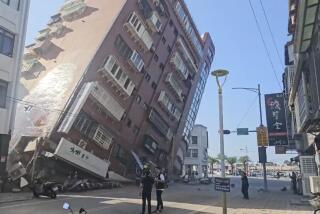Egypt opens border with Gaza Strip
Egypt’s decision Tuesday to open its border with the Gaza Strip after Israel’s deadly raid on an aid flotilla highlights the difficult position Cairo faces in its uncomfortable relationship with the coastal enclave.
The government of President Hosni Mubarak had closed the border for all but a few days each month in an effort to weaken the militant group Hamas, which controls the strip. Much of the Arab world assails that policy as capitulation to U.S. and Israeli interest at the expense of Gaza’s 1.5 million long-suffering residents.
Israel’s killing Monday of at least nine activists on the flotilla carrying aid to Gaza swiftly changed the dynamics, forcing Egypt to show a willingness to skirt Israel’s blockade. The government announced that Mubarak had ordered the crossing to be unlocked to “give access to the necessary” humanitarian and medical assistance.
The statement did not say how long the border would remain open, but some reports said it would be for an unlimited time.
The 82-year-old president has faced widespread criticism at home for not doing more to help fellow Muslims to the north, most notably during and after Israel’s 2008-09 military assault against Gaza that killed about 1,400 Palestinians and Cairo’s ensuing construction of a deep underground barrier to seal off smuggling tunnels between Egypt and Gaza.
“Immense pressure is mounting on the Egyptian government,” said Emad Gad, an analyst at the Al Ahram Center for Political and Strategic Studies in Cairo. “Many Egyptians blame our government for playing a big part and allowing the siege on Gaza, and what happened will now make the government run out of political justifications on why the siege is still taking place.”
Loosening Egypt’s Rafah border crossing is one of the few options the Arab world has against what it views as Israel’s intransigence in working toward Middle East peace. As they have done many times over the years, Arab capitals voiced outrage over the Israeli raid, and thousands of Muslims took to the streets in protest. But only pressure from outside the region, such as from Europe, Turkey and the United States, is likely to alter Israeli behavior.
“I don’t think an exaggerated response from the Arab world will have an impact,” said Randa Habib, a Jordanian political analyst. “The Arab world should let bigger countries with more influence over Israel handle this, including Turkey. Turkish Prime Minister [Recep Tayyip] Erdogan is already a hero in the Arab world.”
The current furor is a “more dramatic example of the kind of political stress that different Arab countries feel in these situations,” said Rami Khouri, director of the Issam Fares Institute for Public Policy and International Affairs in Beirut. “Israel does something outrageous, the Americans back them up, the Europeans go skiing and the rest of the world does nothing, so the Arabs feel rather helpless in the face of continued Israeli aggression and I just don’t see anything substantially new in this.”
There is fear that Iran and Syria will agitate regional tensions and spur new unrest, especially the firing of rockets by the militant group Hezbollah in Lebanon, which has accused Israel of a “horrible terrorist” crime. Some analysts, however, downplayed that possibility, suggesting that Israel’s enemies are relishing watching it reel from international condemnation and isolation.
“There is the danger of instability that is already there,” said Paul Salem, director of the Carnegie Middle East Center in Beirut. “Hezbollah and others will be pleased that Israel is in a bind and will be happy to let them swing from their own rope rather than change the subject by doing something in Lebanon.”
The more pressing question is what Egypt, which signed a peace treaty with Israel in 1979, will do at Rafah. Extending the time of the border opening would win Arab praise. But it would upset Israel and heighten concerns within Cairo intelligence agencies that militants and radicals sympathetic to the Iran-backed Hamas would infiltrate Egypt.
The Mubarak government has long believed that a pliable border would strengthen Hamas’ radicalism and undermine Egyptian security. The country, which relies heavily on tourism, has faced a string of terrorist attacks this decade. Critics claim such fears are exaggerated and provide Egypt political cover to cooperate with U.S. and Israeli strategies to weaken Hamas with a blockade.
“An unconditional opening for the crossing won’t be an easy thing to do,” said Diaa Rashwan, an Egyptian political analyst. “Western powers, and the European Union in particular, should be asking Egypt to open the crossing so Egypt can avoid any political problems and dilemmas with Israel.
“Egypt should take advantage of what happened [Monday] to show that Israel’s use of force is not only against Arabs and Palestinians anymore, but against civilians and European activists.”
Amro Hassan in The Times’ Cairo Bureau and special correspondent Meris Lutz in Beirut contributed to this report.
More to Read
Start your day right
Sign up for Essential California for news, features and recommendations from the L.A. Times and beyond in your inbox six days a week.
You may occasionally receive promotional content from the Los Angeles Times.







